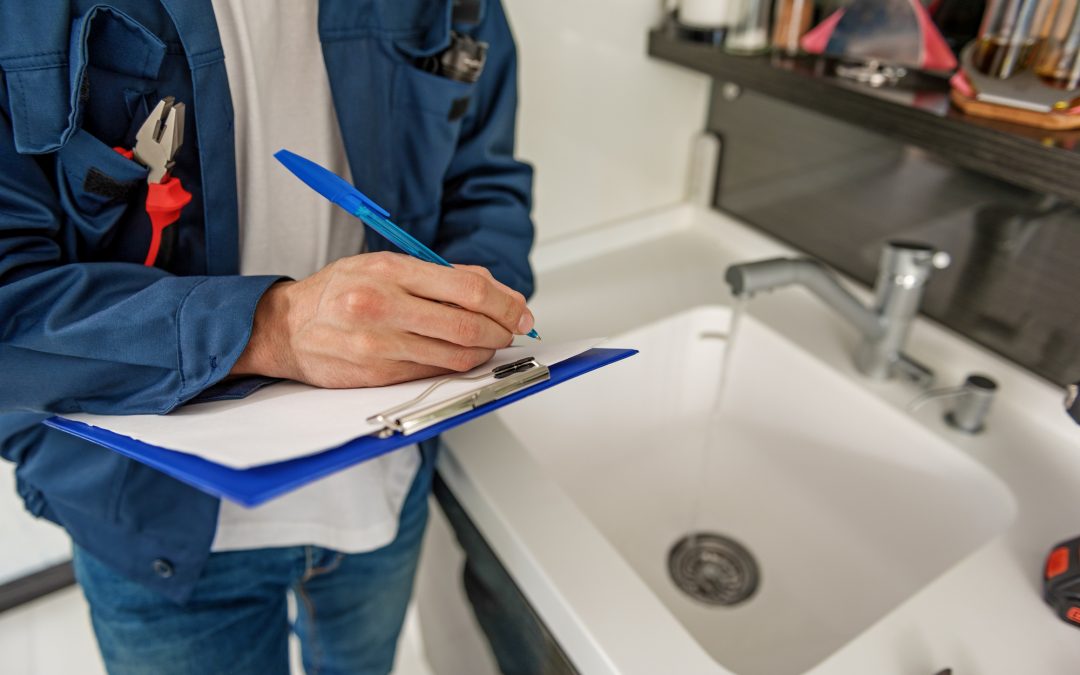Recent reports have found that in spite of everything going on in the world right now, the real estate market in Northeast Ohio is still going strong. If you’re looking to buy a new home, there are plenty on the market to check out.
Purchasing property is no small task. You narrow down your budget, scourge the areas you’re interested in for appropriate homes, and start visiting them in person. Some properties may check off a lot of the “must-haves” on your list.
However, you can’t know the worth of a property until you receive a home inspection report. Things may look good to you, but what would a home inspector think?
Read on to learn more about what a home inspection report is and what to do after you receive yours.
What Is a Home Inspection Report?
Most prospective buyers set up a home inspection after they are in contract to buy a property. It is considered one of the last recommended steps before coming to an agreement on a closing price.
Home inspections are fairly non-invasive procedures during which the value of the home is assessed. Home inspectors assess both the current safety levels and the overall maintenance of the property that you might not notice yourself. What you’ll receive in your home inspection is an estimate of any damage, builder oversight, or neglect and what it could cost you to repair.
Negotiating a Closing Price After Home Inspection
It is recommended that you get a home inspection before closing in order to negotiate for a fair price. The current owners may not be aware of major, costly issues. They may try to gloss over the extent of any damage tot he property.
A home inspection report prevents buyers from getting blindsided after closing. The question is, once you’ve got the report in hand, what do you do next?
Ask for Repairs
The most obvious thing you could do after receiving a home inspection report is to ask the seller to handle any problems that come up.
There may be a handful of repairs you both agree to in order to stick to the asking price. Note that the seller can say no to this option. In some cases, it’s not considered reasonable to ask for repairs.
If the issue doesn’t present an immediate threat, sellers may turn down your request. For example, if the issue is cosmetic or low-cost, it’s not worth asking for a repair. If the project you have in mind is strictly a non-essential renovation—perhaps you want to retile the bathroom or replace the kitchen counters—this is not a reasonable request.
It’s not uncommon for buyers to choose an alternative route. If you ask the seller to perform the repairs, you can’t necessarily oversee the steps they take to do so. When you handle the repairs yourself, you can guarantee that they’re done to your liking.
Ask for a Lower Closing Cost
Another option you have is to ask the seller for a lower closing cost based on the extent of the damage. Your home inspector and your agent can both give you insight into how much money you may have to invest in the home’s repairs.
From there, you can discuss taking at least some of that money out of the closing price. The seller may not budge as much as you want them to and, depending on the contract you’ve signed, this may be within their legal rights.
Ask for Credits
One of the approaches that tend to go over better for both the buyer and seller is to ask for credits. This often allows for the quickest closing, which is ideal for the seller, while giving you some financial security.
In a sense, asking for credits is not that different than asking for a lower closing cost. The idea is that the seller will provide you with some of the finances you need for repairs and this money will come out of the closing cost.
When you ask for credits, the negotiation often becomes more reasonable. This is in part because many mortgage companies require that those credits do, in fact, go towards the repairs specified. In other words, the seller will feel some reassurance that you are not just trying to lower the asking price for repairs you never intend to make.
Back Out of the Sale
In rare instances, your home inspection report may uncover too many problem areas for your liking. Are you legally allowed to back out of the sale?
Whether or not you can legally back out of the sale at this point will depend upon your contract and your reason for wanting to. In Ohio, there are certain laws that determine what both the seller and buyer owe one another after entering the contract.
For example, if the damage your home inspector discovers was purposefully left undisclosed by the seller, you have the right to back out. However, if the owner reasonably did not know about the damage, they may still be in the clear. While you cannot be forced into purchasing a home, you may not receive your earnest money back.
How to Get a Home Inspection Report in Northeast Ohio
Getting a home inspection report is the safest way to ensure that you are getting a fair deal. It gives you a sense of what to expect as a new homeowner so that you are not blindsided or overwhelmed by any potential repairs.
If you’re buying a home in Northeast Ohio, contact us today to schedule your inspection.

